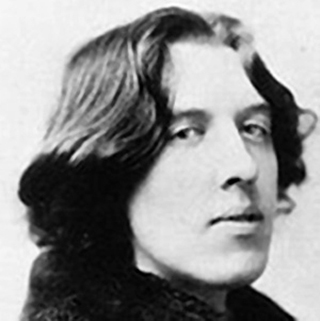
Oscar Wilde in New York city in 1882, photo by Napoleon Sarony. (Image courtesy of Wikipedia.)
Instructor(s)
Prof. Stephen Tapscott
MIT Course Number
21L.705
As Taught In
Spring 2003
Level
Undergraduate
Translated Versions
Course Description
Course Features
Course Highlights
This course features an in-depth course calendar.
Course Description
At this distance Oscar Wilde seems not only to be on the threshold between centuries and between cultural-systems: in many ways he seems to be the threshold. His aesthetics look backwards to the aestheticism of Pater and the moral sensibility of Ruskin, and they look forward to Modernism. His antecedents are 18th century playwrights, and he opened a path of irony and structural self-reflexivity that leads to Beckett and Tom Stoppard. He was Irish but achieved his great successes in England. Arguably, his greatest success was his greatest public failure: in his scandalous trials he shaped 20th century attitudes toward homosexuality and toward theatricality and toward performativity. His greatest performance was the role of "Oscar Wilde": in that sense he taught the 20th century how to be itself.
Other Versions
Other OCW Versions
OCW has published multiple versions of this subject. ![]()
- 21L.705 Major Authors: Old English and Beowulf (Spring 2014)
- 21L.705 Major Authors: America's Literary Scientists (Fall 2010)
- 21L.705 Major Authors: Rewriting Genesis: "Paradise Lost" and Twentieth-Century Fantasy (Spring 2009)
- 21L.705 Major Authors: John Milton (Spring 2008)
- 21L.705 Major Authors: After the Masterpiece: Novels by Melville, Twain, Faulkner, and Morrison (Fall 2006)
- 21L.705 Masterworks in American Short Fiction (Fall 2005)
- 21L.705 Major Authors: Melville and Morrison (Fall 2003)


